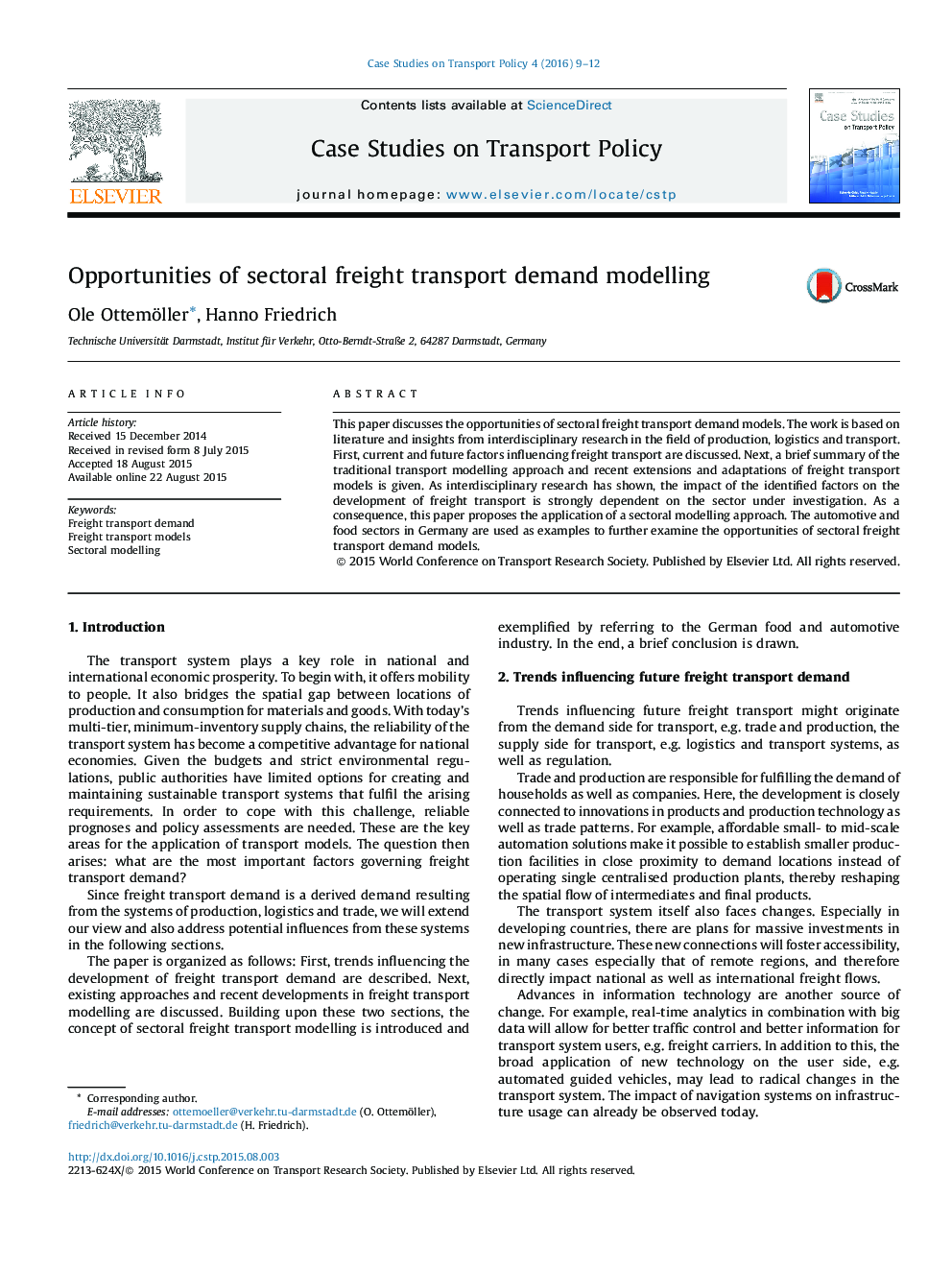| Article ID | Journal | Published Year | Pages | File Type |
|---|---|---|---|---|
| 250641 | Case Studies on Transport Policy | 2016 | 4 Pages |
•Our paper discusses the opportunities of sectoral freight transport demand models based on literature and interdisciplinary research.•We present trends influencing freight transport demand that result from developments in production, information technology, and the transport system.•We introduce the concept of sectoral freight transport modelling, which is capable of capturing the before-mentioned trends by overcoming certain limitations of existing modelling approaches.•Looking at the examples of food and automotive industry we discuss the necessary sectoral differentiation as well as advantages coming from these sectoral focuses.
This paper discusses the opportunities of sectoral freight transport demand models. The work is based on literature and insights from interdisciplinary research in the field of production, logistics and transport. First, current and future factors influencing freight transport are discussed. Next, a brief summary of the traditional transport modelling approach and recent extensions and adaptations of freight transport models is given. As interdisciplinary research has shown, the impact of the identified factors on the development of freight transport is strongly dependent on the sector under investigation. As a consequence, this paper proposes the application of a sectoral modelling approach. The automotive and food sectors in Germany are used as examples to further examine the opportunities of sectoral freight transport demand models.
